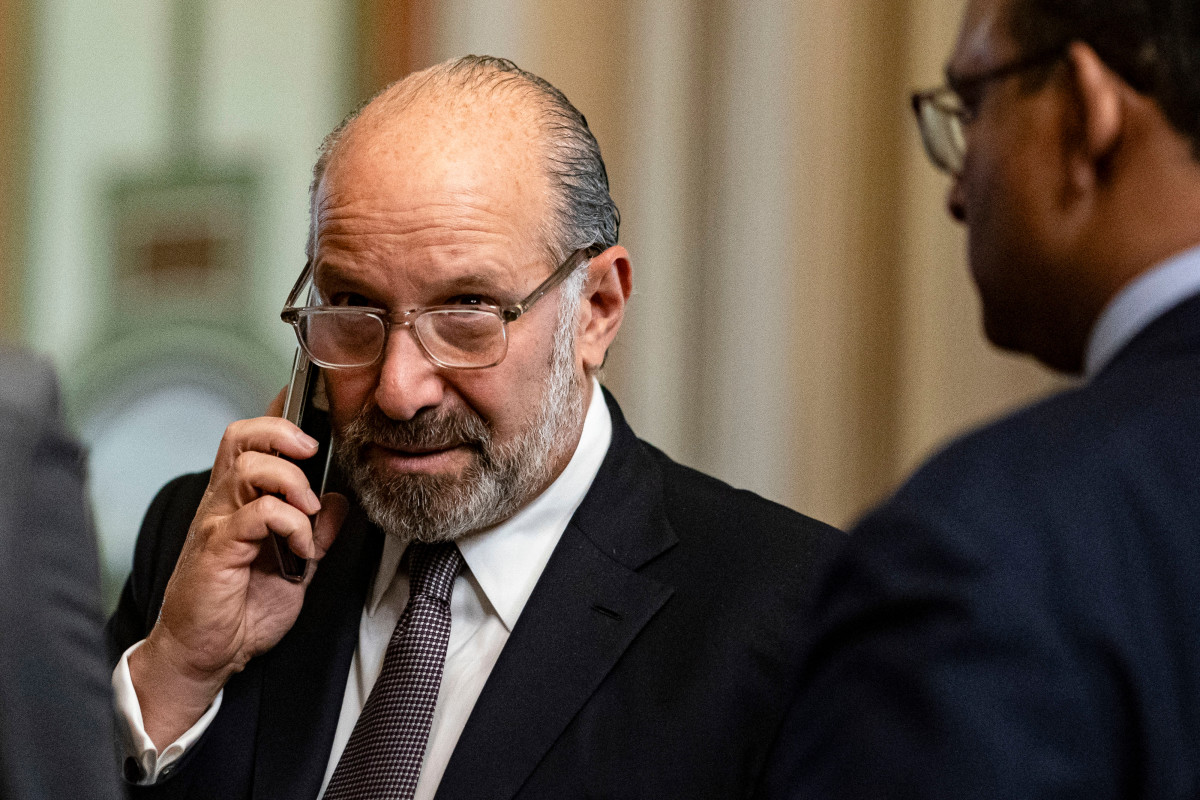The U.S. has taken another step toward its bid to create a sovereign wealth fund that can profit from investments in U.S. companies, acquiring a nearly 10% stake in Intel to become the semiconductor company’s largest shareholder.
Intel confirmed the move on August 22, but discussions had been widely reported since embattled CEO (and former Board member) Lip-Bu Tan met with President Donald Trump on August 11 following sharp criticism from the President over his China business relationships.
The investment stake is unique and has drawn sharp criticism. Opponents suggest that such investments could create an unlevel playing field that undermines capitalism, while proponents argue that such investments are warranted when the U.S. provides taxpayer money to support corporate interests.

Bloomberg/Getty Images
A complicated deal with Intel comes together quickly
After Arkansas Senator Tom Cotton sent a letter to President Trump Lip-Bu Tan’s China ties, the president said Tan was “highly CONFLICTED,” and should resign from Intel’s top post.
Tan traveled to D.C. shortly thereafter for a face-to-face meeting with President Trump, which sparked the possibility of the U.S. taking an ownership stake in Intel.
Last week, the White House confirmed Commerce Secretary Howard Lutnick was negotiating a deal that would convert grants provided under the Biden Administration’s $52.7 billion CHIPS and Science Act in 2022.
That legislation was geared toward providing grants to semiconductor companies to build and expand U.S. semiconductor manufacturing. Most semiconductors are currently made overseas in Taiwan and South Korea, including 90% of next-gen AI chips, primarily made by Taiwan Semiconductor for Nvidia in its Taiwanese fabs.
Related: Lip-Bu Tan’s net worth: The Intel CEO’s wealth after White House visit
Intel was awarded CHIPS Act grants worth $7.9 billion in November 2024. At the time, the White House said they would “directly support Intel’s expected U.S. investment of nearly $90 billion by the end of the decade” and that “The Department will disburse the funds based on Intel’s completion of project milestones.”
However, Intel has stumbled financially since then, with mounting losses forcing Tan to pivot toward cost-cutting, including layoffs, and a slowed timeline for its manufacturing expansion.
“We need to make our own chips here,” said Lutnick on CNBC earlier this week. “We should get an equity stake for our money.”
The Intel deal gets done: Here are the details
The Trump administration attempted to calm fears of favoritism in media appearances this week, suggesting that equity for grants to ramp manufacturing was a matter of national security and good business.
“The last thing we are going to try and do is take a stake and then try to drum up business,” said Treasury Secretary Scott Bessent on CNBC on August 19. “There is no talk of trying to force companies to buy from Intel.”
Bessent also argued for an equity stake in Intel to ensure an adequate supply of chips sourced domestically, saying, “99% of the advanced chips in the world are made in Taiwan” and “for national security, we have to stop that single point of failure.”
According to Intel, the U.S. bought 433.3 million shares at a price of $20.47 per share, an investment totaling $8.9 billion “funded by the remaining $5.7 billion in grants previously awarded, but not yet paid, to Intel under the U.S. CHIPS and Science Act and $3.2 billion awarded to the company as part of the Secure Enclave program,” according to Intel’s statement.
“We are grateful for the confidence the President and the Administration have placed in Intel, and we look forward to working to advance U.S. technology and manufacturing leadership,” said CEO Tan.
“As more companies look to invest in America, this administration remains committed to reinforcing our country’s dominance in artificial intelligence while strengthening our national security,” said Lutnick.
The US government will also get a five-year warrant, at $20 per share, that allows it to acquire an additional 5% of Intel shares if Intel’s ownership of its foundry business falls below 51%.
The investment will be considered passive, without board representation.
Intel shares closed at $24.80 on August 22, up 5.53%.
Related: China pushes back after Nvidia deal sparks controversy
#Intel #begins #chapter #biggest #shareholder